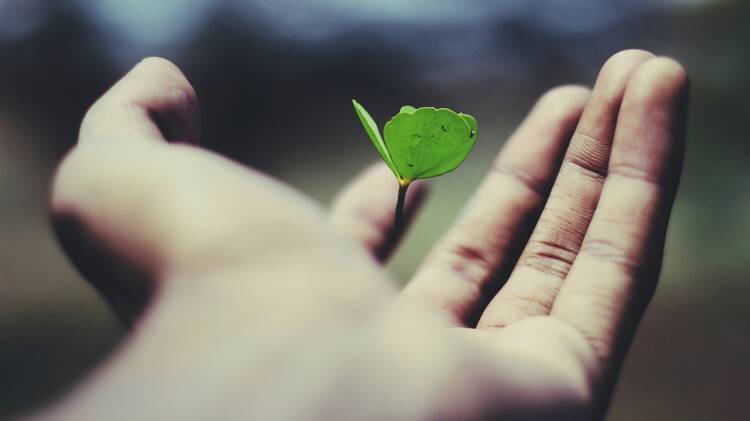A Reflection for the Memorial of St. Pius of Pietrelcina, Priest
Find today’s readings here.
Ah, Mondays. Some of us dealing with traffic, others dropping kids off, others, like my father, sitting down to start his morning routine––except it’s not. Every morning, Papi would joyfully sit with his newspaper and drink his cafecito. However, at 90 years old and with failing vision, the “newspaper” is gone and an electronic tablet where he can blow up texts has replaced it. There’s a hint of the familiar still there, but the times have changed, and the unexpected gift of this new time is that he can see.
Too often we resist change because “it’s always been this way.” It took dad a while to give up his paper, but now he delights in reading news from around the world. Fear of change is part of being human and studies show why: it’s all about survival. Our ancestors learned quickly to avoid loss and to hang on tight to what they had. And as social creatures, they also learned that groups offered protection, imposing norms and routines to ensure group loyalty. When faced with giving up his old paper for the tablet, Dad had to face those two fears: loss and belonging. Once he overcame these he gained much, the amount of news he had at his fingertips multiplied and his friends all started making the switch as well. His fears were unfounded.
Almost 60 years ago, the Second Vatican Council was an instance of getting the global Church past our fears. Especially evident in the Pastoral Constitution on the Church in the Modern World, those gathered insisted that we commit to “scrutinizing the signs of the times.” Change was inevitable, and it could also be good. Looking at the readings today, I felt my brow furrow with an acute awareness of our continued fear of change. In the first reading, the neighbor is male, the person interacting with the neighbor is male, the potentially quarrelsome person and the lawless person are also males, and even more, God is male. In the psalm, the “just one” is male, and those he doesn’t harm are his “fellow man.” Finally, in the Gospel reading, Jesus is also translated to speak in male terms about the ones who should place their light where others might see it.
To eyes like mine, this feels like trying to read something that is sorely out of focus. The light of half of the human race is dimmed in this text because the fearful habits of English translators has won and “reading the signs of the times” has lost. How much more communicative would these sacred texts be if they reflected the abundance of humanity and not our fears? Why do we as a church resist the undeniable truth that all humans are simply humans, and that our maleness and femaleness is just one of many things about us, not the thing that defines us? We are the progeny of cultures that (contrary to Jesus’ own practices of unconditional embrace of all!) placed men above women and created language, rituals and structures to reinforce such superiority. Are we still afraid of the “loss” that the full equality of women might bring about? What would that loss be? And would our embrace of such equality force us out of our “group”? Would it make us into outcasts?
If we read the signs of our times, we know the answer to both these questions is a resounding “No.” Women’s full inclusion into all of society’s structures would not be a loss, but a tremendous gain. And our identity as a group cannot possibly be threatened by being more aligned with the Gospel. Jesus sends a woman, Mary of Magdala, to be the first apostle for the world and communicate his resurrection. Her full humanity and authority couldn’t be clearer. My invitation today is to go back and reread today’s Scriptures and replace every instance of maleness with openness to all humanity and to a God who is beyond our puny human imagination, and then notice how much more beautiful it is. Beauty is pretty good at overcoming fear.








